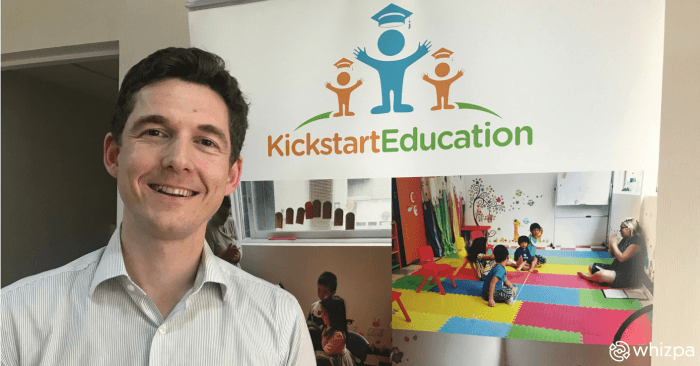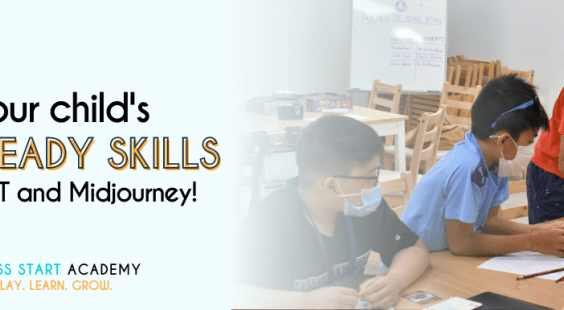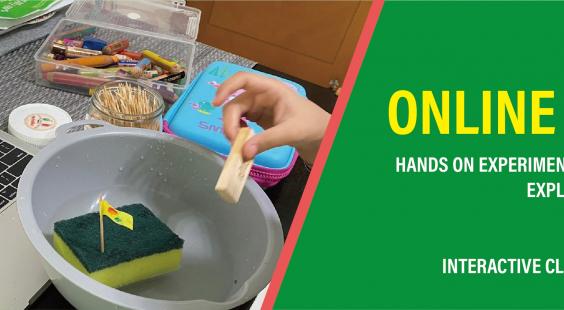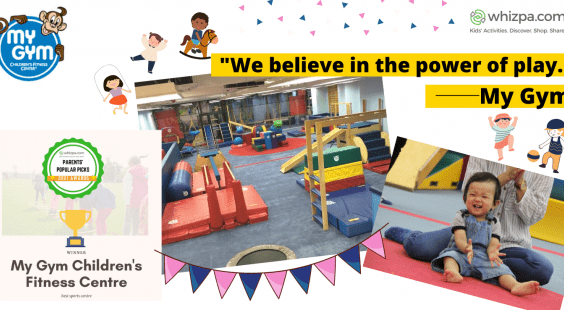
Keeping Kids Curious
What is the best way to inspire kids to learn? Charles Beddow, the founder and principal of Kickstart Education, shares some advice on how to make learning more interesting and effective.
Arriving in Hong Kong five years ago to teach in a local secondary school in the New Territories, Charles noticed that local schools in Hong Kong tend to be very exam-oriented. At the school in which he was teaching, students had to take four sets of tests and examinations a year. With the weeks preceding and following the testing dedicated to preparation and review, he estimated that students were spending at least 12 weeks of the school year just focused on exams. This, inevitably, led to high levels of pressure for students and also parents, and teachers. Furthermore, he felt that the rote-learning style that is prevalent in the Hong Kong educational system did little to expose kids to the joys of learning. In this context, Charles started to wonder whether he could give kids a different approach to learning and decided to establish Kickstart Education three years ago.
“Young children are generally super-curious and ask loads of questions – they are basically asking you to teach them” says Charles. “However, I’ve seen that when they start school in a rote-learning system, they often lose this curiosity and kind of become dulled down – they end up just waiting to be told what to do. At Kickstart, we really try to do it in a different way – we want to take the children’s innate curiosity and all the questions they have and try to channel that to specific learning goals.” The aim is to get students to “pull from the teacher” rather than passively wait for information to be given to them.
In explaining how the enquiry-based methodology used at Kickstart works in practice, Charles gives the example of his FluEnSy classes. One of the most popular courses that Kickstart Education offers, FluEnSy is a systematic approach to teaching children to speak English in a natural way. During a typical FluEnSy class, the teacher might start by showing kids a particular object or picture, prompting them to describe what they see and encouraging them to ask questions about it. Teachers will guide students to go from basic descriptions to more and more abstract discussions whilst naturally introducing the kids to the vocabulary they need to talk about specific topics.
Another very popular course that Kickstart Education offers is their Story course, which focuses on fostering children’s’ creativity and storytelling/writing skills. Here, teachers may make use of storyboards to encourage children to tell stories, or ask open questions to stimulate kids to change the storyboards around and create their own unique stories. Again, the teaching/learning style that Kickstart promotes is based on high levels of interaction and engagement between teachers and students. The Kickstart Story courses have proven to be very helpful in preparing children for school entrance interviews as students are taught the skills to express themselves freely rather than being trained to repeat prepared answers to interview questions.
Despite the progress that students make in Kickstart courses, Charles feels that there are also many ways parents can help students to learn effectively outside of the classroom. One of the main challenges that Hong Kong students face in learning English is a lack of conversational practice. In a local school classroom setting where teachers are teaching 20 or more students at a time, teachers simply do not have time to give individual students enough English speaking practice in class. For students enrolled in a Kickstart class, often that class is the only time during the week when they actually speak English. Thus one of the top priorities at Kickstart is to involve the parents and suggest ways in which they can bring English into their child’s life. “We advise parents to try to aim for 20-30% exposure to English, so considering there are 168 hours in a week and given that a child will be awake for about 100 of those, we suggest parents aim for 20-30 hours of English language exposure a week” says Charles. Some ideas for how parents can achieve this include:
- Reading to your child in English, or getting your child to read to you in English.
- Letting your child listen to English songs to expose them to some English pronunciation and phonics (Kickstart can provide parents with a phonics song list to get them started).
- Enrolling your child in hobby classes (for example sports lessons) that are conducted in English so that your child can see how the English language is used in context with actions.
- Letting your child watch English language TV shows or cartoons.
In addition to English classes, Kickstart Education also offers Science courses and one-on-one private tutoring for students. Many of their one-on-one tuition requests are centred around interview preparation, and for these cases the Kickstart team will work with each family to recommend a combination of one-on-one tuition and small group classes for the child’s exact situation. Charles offers some advice for parents who are considering private tuition for their children: “Talk to potential tutors and explain your child’s situation and needs. Ask the tutor what their advice would be in terms of strategy, execution, and the timeframe required to address your child’s needs.”
In all areas, Kickstart aims to be fully transparent with parents about what their children’s needs are, how they are progressing, and what they can realistically achieved within a given period. Through this open approach, Charles has found that parents are increasingly seeking advice on areas such as parenting and school interview preparation – areas that Kickstart Education is developing further.
In the 3 years since launching, Kickstart Education has grown to a team of 6 full and part time staff. In addition, it has built partnerships with 7 other educational organisations to provide courses and teachers for their students. This growth has been achieved mainly through word-of-mouth referrals, which Charles believes shows that Kickstart Education’s approach to education is effective and appealing to parents.
Moving forward, Kickstart Education is preparing to launch a suite of online resources designed to help parents support their children’s learning. Kickstart Education’s free materials will include:
- A series of stories built around high-frequency words that will teach students words in context. Parents will be able to read these stories with their children and ask related questions.
- Storyboards with story starters that prompt children to create their own stories through either drawing or writing out their ideas.
- Science instruction sheets that parents and children can follow at home to conduct their own fun science experiments.
To find out more about what Kickstart Education offers, sign up for a special 2-class trial package at $100 for 2 classes for creative writing classes & English speaking classes or go to https://whizpa.com/listings/kickstart-education to see what other parents have to say.








